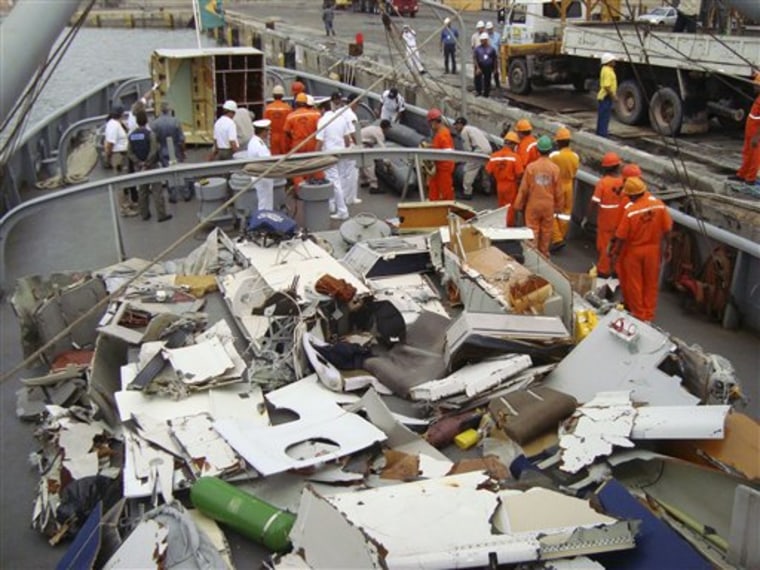Two ships using U.S. listening devices to search for the black boxes of Air France Flight 447 were ending their hunt Friday, an American commander said.
A French nuclear submarine, however, will continue to look.
U.S. Air Force Col. Willie Berges, the Brazil-based commander of American military forces supporting the effort, said one ship towing a U.S. Navy listening device had already stopped searching.
"The last ship will be departing the search area today," Berges said. He didn't know what time the final ship would leave the search area.
Flight 447 crashed into the Atlantic Ocean, more than 900 miles (1,450 kilometers) off Brazil's northeastern coast, on June 1. All 228 people aboard died. Investigators have said without the black boxes, it may be impossible to know with certainty what caused the crash.
Berges said the ships, which have been searching for the cockpit voice and flight data recorders since June 15, had "no success — nothing was tracked."
The commander said a French nuclear submarine would continue trying to pick up emergency signals from the black boxes, but he didn't know for how long.
The black boxes are built to emit emergency "pings" for about 30 days, and then slowly fade away.
Two teams of American personnel were operating the U.S. Navy pinger locators that were towed by French-contracted ships. A French nuclear submarine is still scouring a search area with a radius of 50 miles (80 kilometers) in the area where the plane is thought to have crashed.
French investigators say 640 parts of the plane — including a nearly intact tail, an engine cover, uninflated life jackets, seats and kitchen items — have been plucked from the Atlantic Ocean, some of them huge pieces that had to be handled by cranes.
The debris was initially held in the Brazilian city of Recife, but the material is aboard a ship en route to France, where investigators will search for clues.
French crash investigators last week issued a preliminary report into the crash, finding that problems with the plane's speed sensors were one of several factors in the crash. It said the plane hit the ocean intact and belly first at a high rate of speed.
Experts have found no signs of an explosion or terrorist act.
